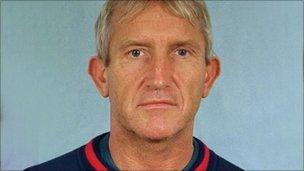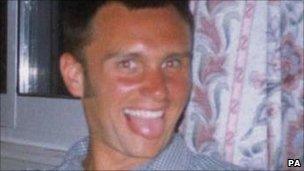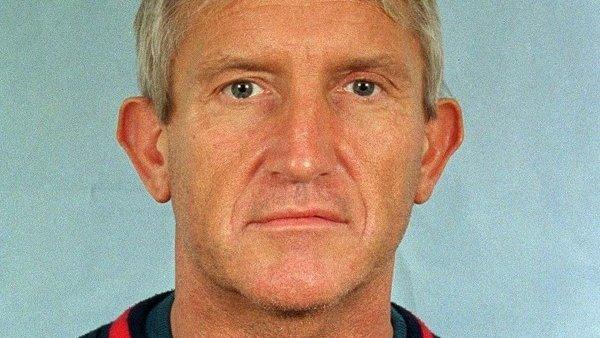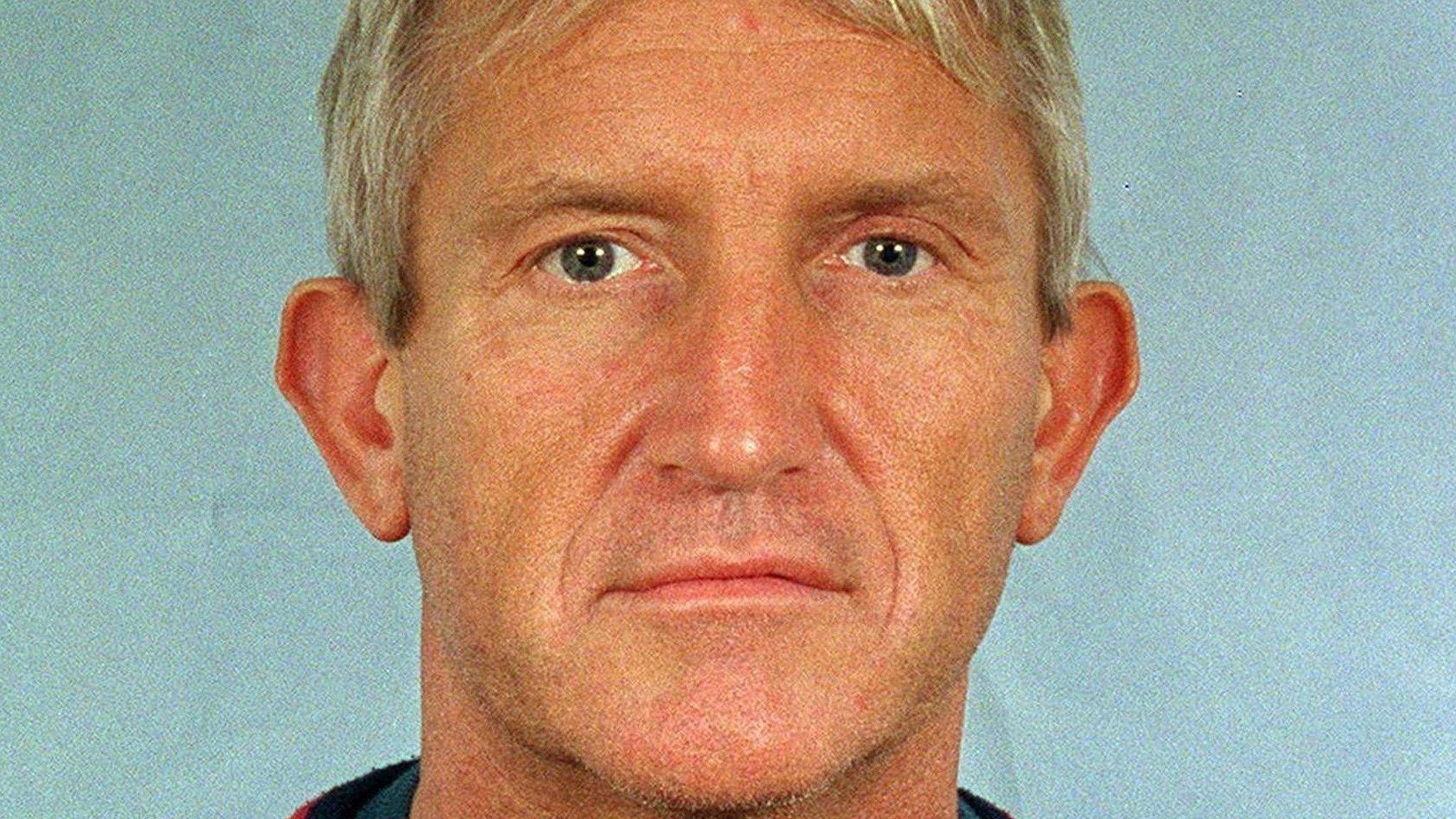Kenneth Noye M25 murder referred to Court of Appeal
- Published

Kenneth Noye: Fled to Spain after the killing
One of the UK's most notorious criminals has been granted a fresh appeal against his conviction for a road rage murder in 1996.
Kenneth Noye, 63, stabbed Stephen Cameron, 21, during a fight on the M25.
The Criminal Cases Review Commission has referred the case to the Court of Appeal because of questions over a pathologist's evidence.
Noye, previously cleared of murdering a police officer, went on the run to Spain but was eventually tracked down.
At his Old Bailey trial in 2000, Noye said he had acted in self defence after being attacked by Mr Cameron when their vehicles stopped on an M25 slip road at Swanley in Kent.
Witnesses said there had been a fight and that Mr Cameron had got the better of the older man. But what happened next was disputed in court.
Noye argued he stabbed once in the chaotic melee, fearing for his own safety. The prosecution said he had stabbed twice - and it was therefore a plan to kill. The jury found Noye guilty of murder by a majority of 11 to one.

Stephen Cameron: Fought Noye on slip road
In a statement on Thursday, external, the CCRC said: "Having carried out a thorough review of Mr Noye's case, that has included consideration of the pathology evidence at trial and new expert evidence… the commission has decided to refer Mr Noye's conviction to the Court of Appeal on the grounds that there is a real possibility that the court may quash the conviction as unsafe.
"The commission's referral of Mr Noye's conviction to the Court of Appeal means that the court will hear a fresh appeal.
"The court will decide whether to uphold the conviction, whether to quash the conviction and require a retrial, or whether to quash the conviction without requiring a retrial."
Earlier this year, Noye unsuccessfully challenged his 16-year minimum jail term, but the judgement revealed, external that Dr Nat Cary, one of the UK's top pathologists, had been critical of the original findings presented at trial.
Dr Cary suggested that Noye could have stabbed once in a manner which caused the two distinct wounds to Mr Cameron's heart and liver.
The original pathologist, Michael Heath, resigned from the Home Office register in 2006. The Advisory Board for Forensic Pathology upheld 20 disciplinary charges against Dr Heath and ruled his conduct had brought into question his fitness to practise in separate cases.
Noye's first appeal in 2001 was dismissed, external after the then Lord Chief Justice said there was "no justification" for Noye to have produced the knife.
But in a statement, Noye's lawyer Henry Milner said: "Very significant fresh evidence has come to light, which we allege seriously undermines the credibility of the original pathologist.
"Assuming these findings, and the prosecution pathologist's interpretation of them, have been accepted as accurate by the jury at the time of Mr Noye's original trial, they undoubtedly would have damaged my client's credibility in front of the jury, and his case that he acted in self-defence throughout."
Police officer's death
Noye first came to public attention in the 1980s when he was charged with the murder of Pc John Fordham, a Scotland Yard officer.
Pc Fordham was hiding in Noye's extensive grounds in Kent as part of an investigation into the 1983 Brinks Mat bullion robbery, in which a gang took three tonnes of gold.
At his 1985 trial, Noye told the jury that he had acted in self-defence when confronted by Pc Fordham - and he was cleared or murder.
But the following year, he was convicted of handling Brinks Mat gold and jailed for 14 years.
- Published13 February 2015

- Published25 June 2010
